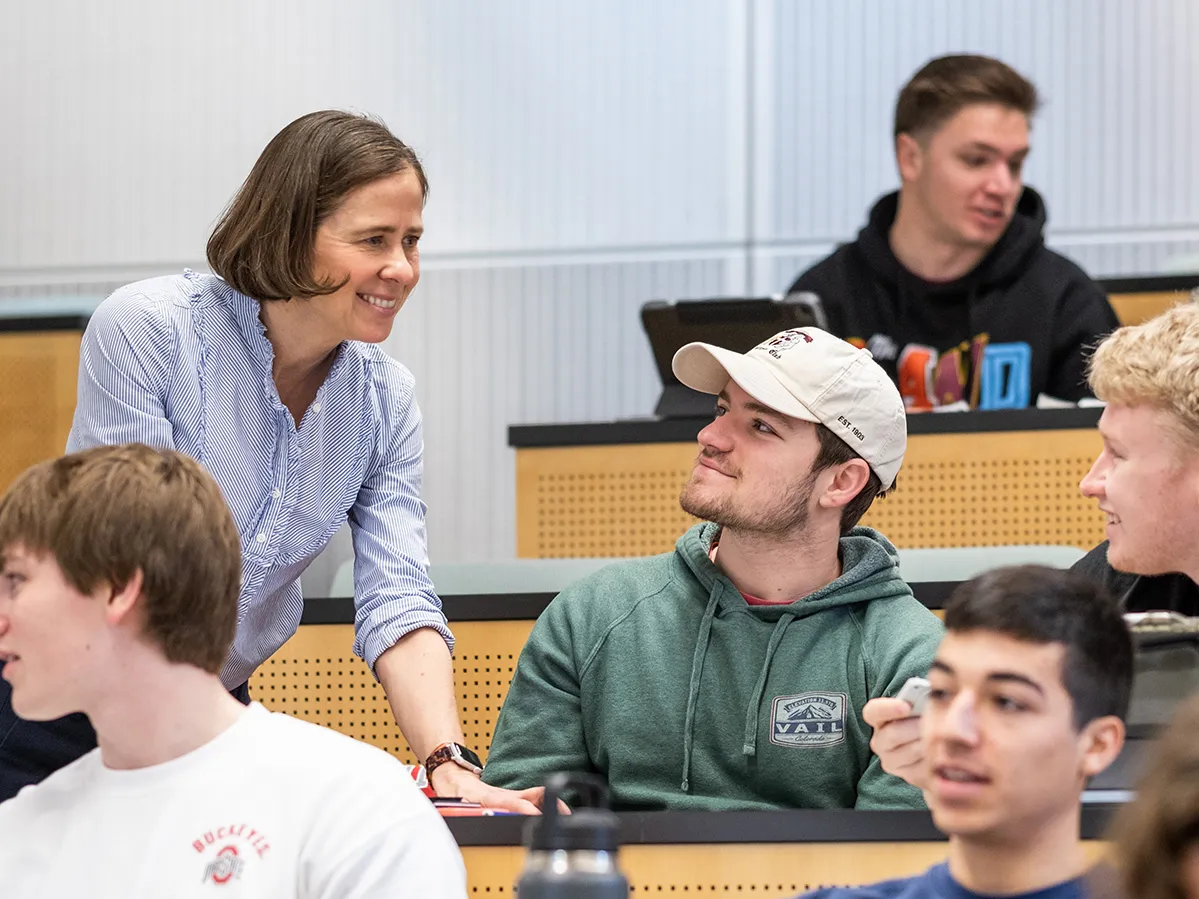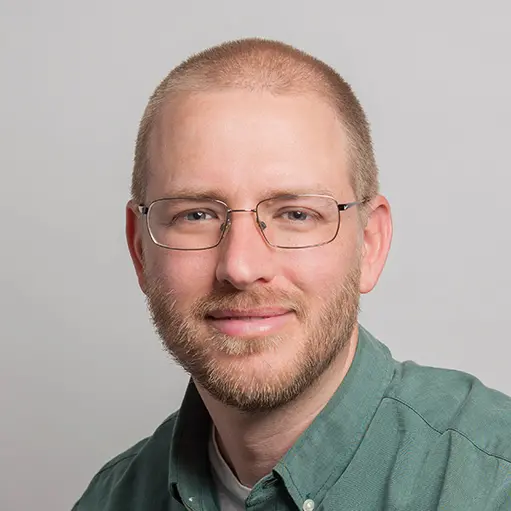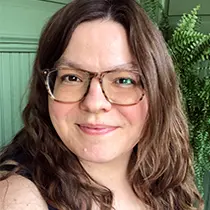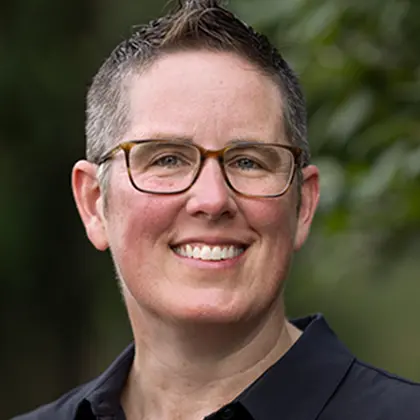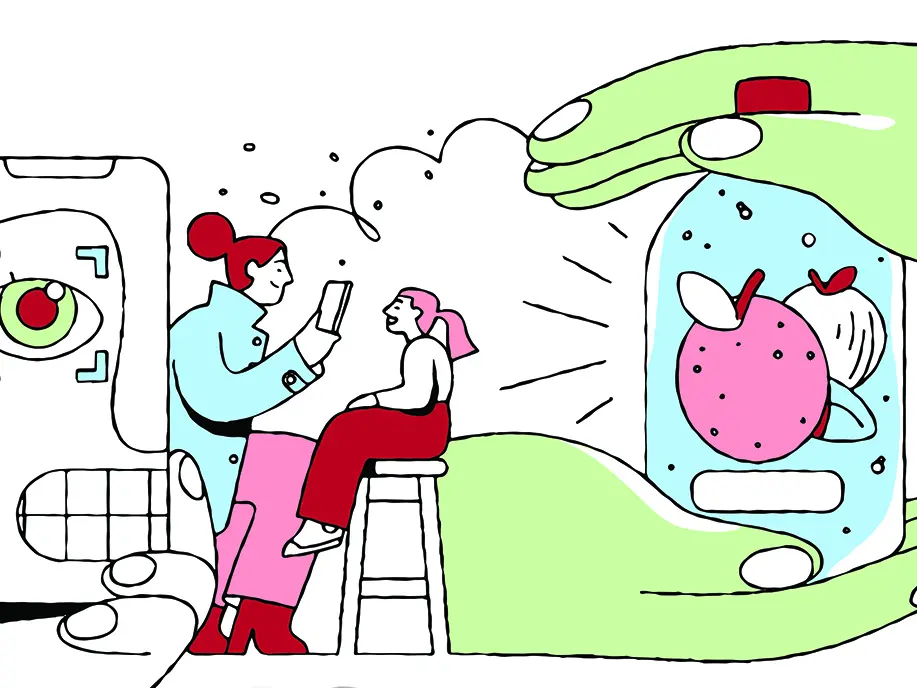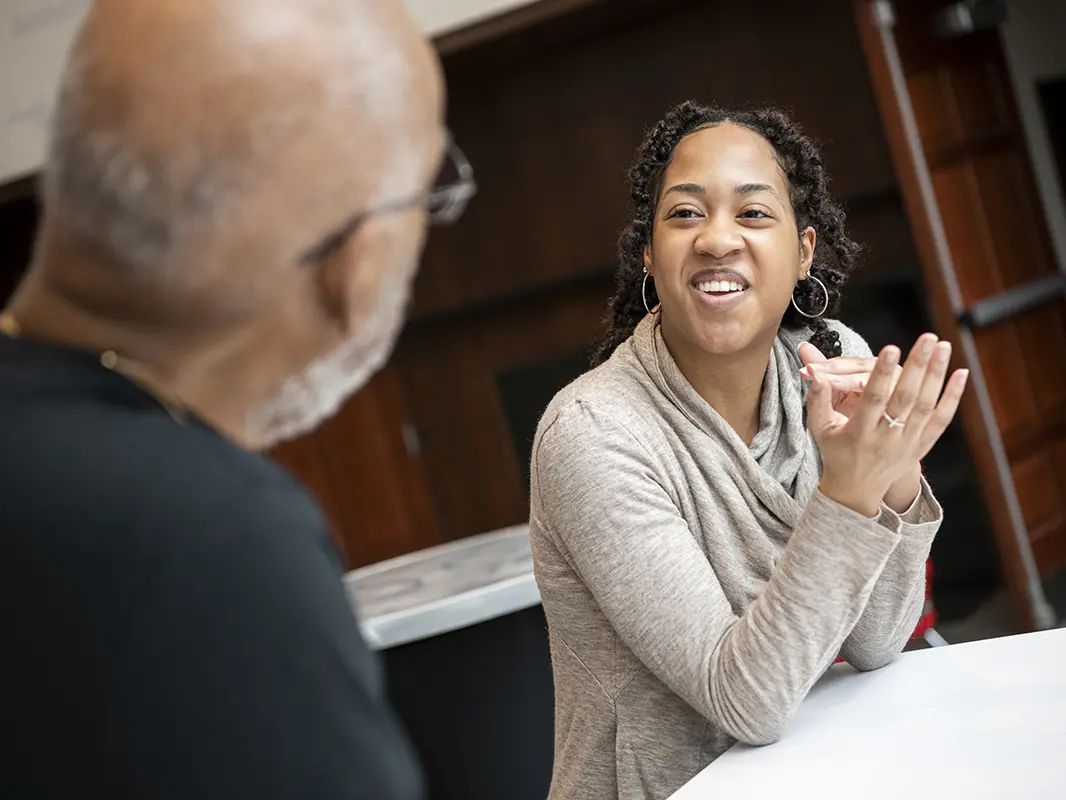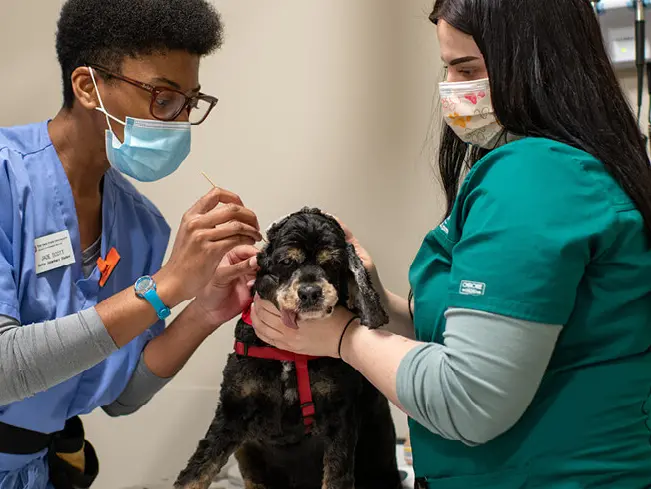How 5 campus mentors approach sharing their wisdom
As Sherée Greco, Chad Zipfel, Dan Thomas, Monica Giusti and Kentaro Fujita show, our faculty and staff take care to feed students’ curiosity, challenge and nurture them.

Sherée Greco collaborating with a mentee, student Skylar Kyser, in the Drake Performance and Event Center
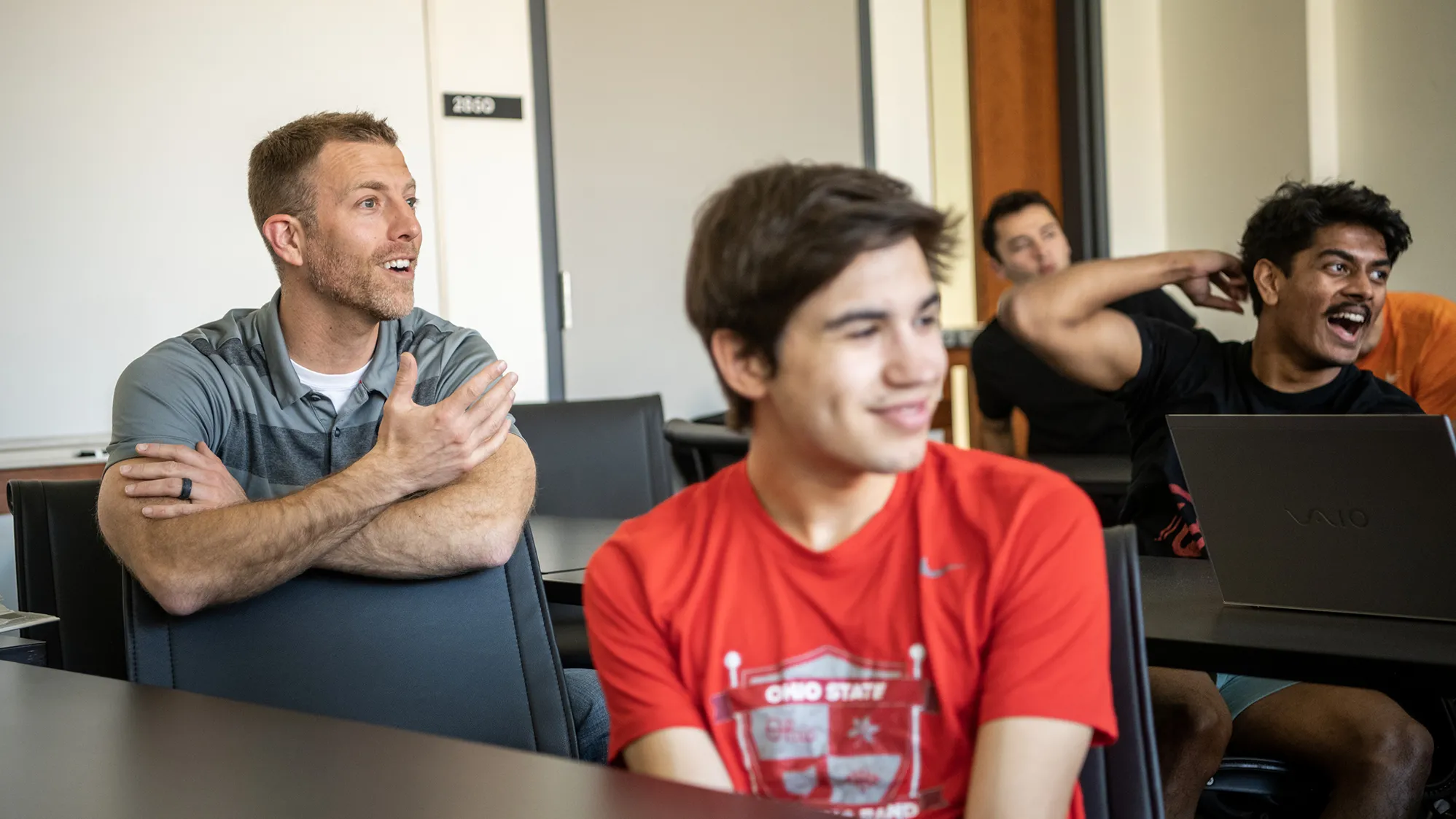
Chad Zipfel, left, with a group he helps lead for Fisher College of Business’s Finance THRIVE program
An eye for connections
From the start of his career, Chad Zipfel ’07 has always gravitated toward mentorship.
After graduating and landing at Procter & Gamble, where he started as a finance intern before climbing the ladder to a director position, he would frequently return to campus to recruit students to work at P&G. For those Buckeyes who joined the team, he would step up to offer constructive guidance and feedback.
“Mentoring is in my nature,” he says.
When Zipfel came on at Ohio State as a senior lecturer of finance, he joined the Second-year Transformational Experience Program (STEP), which pairs faculty with second-year students, and he’s also occasionally taken on mentees through the honors finance program.
Beyond those structured mentorships, students from Zipfel’s classes often gravitate toward their teacher, asking to meet with him during office hours to learn more about his background and get networking help. Thanks to more than a decade working in the corporate world, he’s built invaluable relationships and connections in the industry.
That professional experience was a big part of the appeal for Khalil Clements ’19, who approached Zipfel to be his mentor early in his educational career at Fisher College of Business.
“I respected his opinion and views,” Clements says. “I was using him as a sounding board as I was thinking about internships and jobs and all those things you do as a student.”
Clements appreciated Zipfel’s advice, but even more so his commitment to making himself available, his willingness to help and his genuine interest in his mentee’s development, both professional and personal. Zipfel prides himself on offering an unbiased perspective on the issues weighing on his mentees and providing an informal environment where students can really open up and be honest, without worrying about judgment.
Now that Clements has graduated and is working as a portfolio strategist in Los Angeles, the two stay connected via text and LinkedIn, where Zipfel enjoys following the achievements of his mentees.
“It makes me feel good to know I’ve played a very small part in helping to get that raise, get that promotion, nail that interview,” Zipfel says.
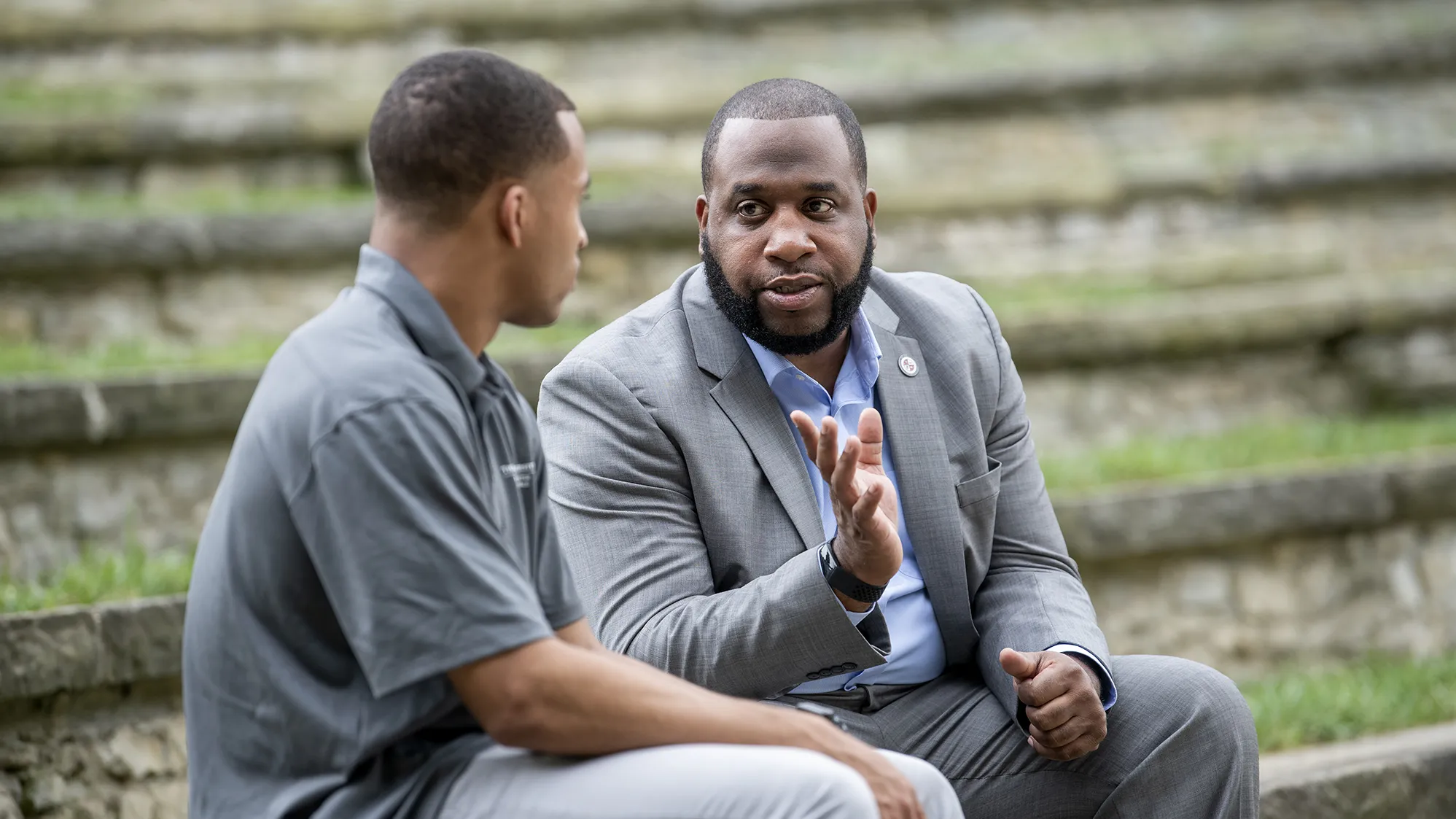
Dan Thomas talking with student Mike Hull in Browning Ampitheatre
Step No. 1: Trust
Daniel Thomas ’03, ’19 MSC and his mother are both first-generation college students — they attended school at the same time. So, while Thomas knew the value of education, he didn’t have a firm grasp on how to navigate the system.
He found a home-like support system that helped him succeed in what today is Ohio State’s Office of Diversity and Inclusion. Thomas now works at ODI as assistant director of the Bell National Resource Center on the African American Male, and he makes a point of passing along the kind of guidance that assisted him.
Nnaemeka Anene ’20 has been on the receiving end of Thomas’ help, and it made all the difference.
“I felt like I was struggling with my major,” Anene recalls. “I tried to hold myself to a high standard academically, so I didn’t feel like I was doing as well as I could.”
He turned to Thomas for advice. They talked about Anene’s goal to have a lasting impact after graduation and how his major, materials science and engineering, fit into that. Thomas didn’t tell him what to do, Anene says, but walked him through steps that could help him achieve his goals.
When Thomas mentors students in situations like this, he emphasizes honesty, vulnerability and trust.
“Part of that is really sharing my journey and sharing my failures … and then showing how I overcame those,” he says.
Anene benefited from that wisdom. Like many young people leaving home, he says, he had to adjust to all that freedom. He came to trust Thomas as a person he could turn to and count on in his new home away from home.
He ended up sticking with his major. That led to a job with the flexibility he needed to invest in his Dayton and Columbus communities, including starting a nonprofit called Things That Matter. He also is a basketball coach, giving him another opportunity to influence young people.
Thomas is proud to see ripple effects like those resulting from the time and attention he gives others. In another recent story he heard, a group of young men he mentored visited an elementary school, talking to children about the importance of education and working together to be successful.
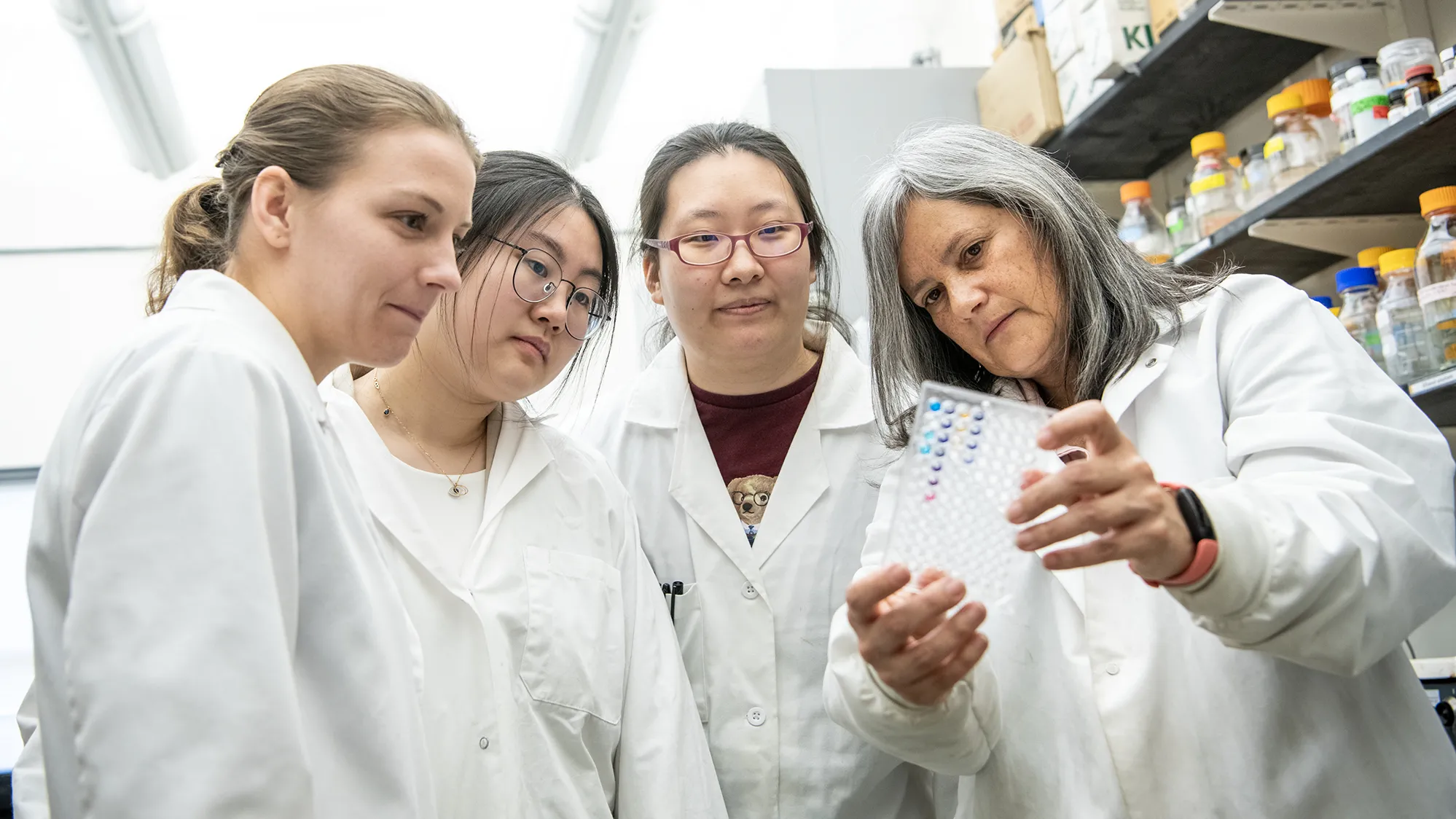
Monica Giusti working with students in her lab
Give-and-take
Work in any field long enough and you may get a little set in your ways.
For food scientist Monica Giusti, one of the rewards of mentoring young researchers is the fresh perspectives they bring.
Tunnel vision is dangerous, she says. “We can just be stuck in one place, right? We have our own ideas, knowledge, strategies, everything. But every time we welcome a new student, we exchange ideas with a new student, we gain new perspectives. It’s like a fuel of energy.”
Giusti is a professor in the College of Food, Agricultural, and Environmental Sciences’ Department of Food Science and Technology. There she teaches, researches antioxidant pigments that naturally occur in fruits and vegetables, and serves as an advisor for graduate students. In that position, she’s able to offer insights and guidance from her years of experience, just as one of her mentors did for her.
As a young researcher, Giusti would get frustrated with an experiment, feeling “nothing worked, everything was terrible. And my advisor would be like, ‘Oh, that is so interesting.’” Her mentor would help her see the intriguing angle.
Giusti helps her students do that, too, and to focus on research they are passionate and curious about. She adjusts to their learning style. Some are very focused on a goal, she says, so she tries to help them see the bigger picture. Others “can get lost in that sea of possibilities,” so she helps them prioritize and focus.
Taylor Wallace ’07 MS, ’10 PhD was one of those laser-focused types. A food scientist and author, he has made numerous media appearances and runs Think Healthy Group, his own research and consulting business. Right now, he’s working on a large child nutrition study in Guatemala.
At Ohio State, “I was very much the student who was very motivated, but very headstrong and wanting to get in there and get it done. And I always wanted the next best thing,” Wallace says. “And Monica really taught me to slow down.”
He says Giusti puts a lot of energy and effort into her students, building personal relationships and encouraging them to participate in extracurricular activities that prepare them for life after school.
Wallace now teaches, too, as an adjunct faculty member at George Mason University. “Sometimes I laugh because I have students who are like me, and I try to think, ‘What would Monica do?’”
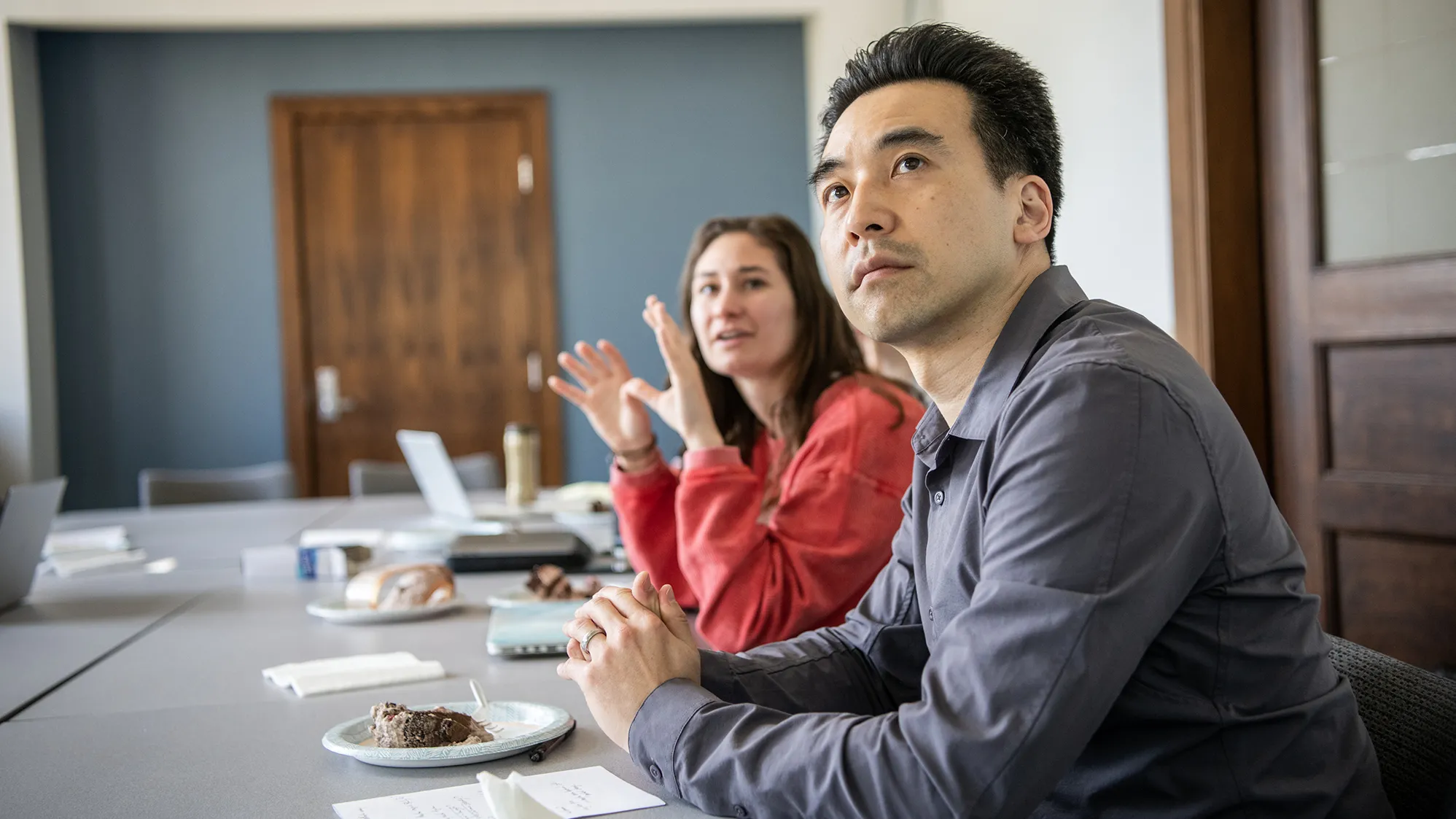
Kentaro Fujita meeting with students to discuss lab work (on a day when they surprised him with a birthday cake)
Growing relationships
One of Psychology Professor Kentaro Fujita’s research interests is how people are motivated to grow, and he considers mentorship to be a natural outcropping of a growth mindset and purposeful self-improvement.
“The opportunity to work really closely with somebody and watch them develop is one of the most exciting, rewarding, fun aspects of the job,” Fujita says. “Mentoring is a special kind of teaching where you work together. You get to really know the other person, and they get to know you.”
Expressing appreciation for the relationship-building component of mentorship, he says he has always been fascinated by the transformation of mentor-to-mentee bonds over time.
Mentorships always start with very clear, hierarchical differences between student and faculty member, but often, his mentees have become his colleagues. Beyond inviting them to conduct research with him, Fujita offers his students advice and perspective on professional development. And in his lab, they become more than colleagues — they become family.
That’s possible because he sees his mentees as whole people, says Laura Wallace ’15 MA, ’19 PhD. She nominated Fujita for a faculty mentor award through the Postdoctoral Affairs Office after working on several projects with him during her time at Ohio State. They combined their research interests to examine people’s motivation for social change and how that might conflict with their motivation for keeping things the same.
“He is the kind of mentor who encourages his mentees to develop their independence while challenging them to be better scholars,” she wrote in the nomination.
Today, Wallace, a principal researcher at the Roman Family Center for Decision Research at the University of Chicago, says of Fujita’s approach: “It’s about success over the long term rather than success in the moment.”
To Fujita, that means prioritizing his mentees’ well-being and supporting them as they do the work they’re most interested in.
Want to be or find a mentor?
Students and alumni alike benefit from mentoring relationships. To express your interest, join the AlumniFire community and add mentoring to your profile. More is in the works for alumni mentors, too, so stay tuned.
